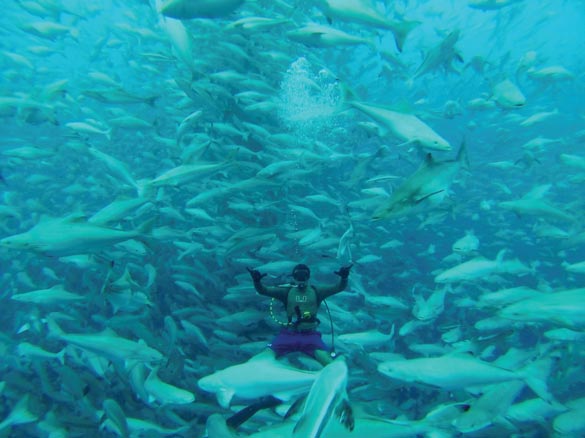Summit, policy outline veterinary role in offshore aquaculture
The veterinary community has an opportunity to facilitate the safe development of offshore U.S. aquaculture, according to a new report about a recent summit.
The AVMA Summit on the Practice of Aquatic Veterinary Medicine in the Exclusive Economic Zone was held Nov. 14-15, 2018, in Rosemont, Illinois. The EEZ refers to waters under federal jurisdiction beyond state waters, mostly between 3 and 200 miles offshore.

The AVMA Board of Directors, while meeting June 18-19, accepted a report from the AVMA Aquatic Veterinary Medicine Committee on the outcomes of the summit. On a recommendation from the committee, the Board also approved minor revisions to the AVMA policy on veterinary licensing in waters outside state jurisdiction, now the AVMA policy on "Aquatic Veterinary Practice in U.S. Waters Outside State Jurisdiction." There currently is no federal policy on veterinary licensing or practice in the EEZ.
The summit attendees were approximately 45 stakeholders representing state and federal agencies, academic and research institutions, and animal health laboratories. The meeting objectives were to provide an overview of challenges and opportunities facing aquatic veterinarians practicing in the EEZ, solicit feedback on the relevant AVMA policy, and develop potential next steps.

"The EEZ offers a significant opportunity to expand the marine food fish aquaculture sector in the United States and meet a growing domestic demand for seafood," according to the executive summary of the summit. "While aquaculture has been more prevalent in state waters, very few commercial facilities have been permitted seaward of state jurisdiction under the Submerged Lands Act in the EEZ, which is under federal jurisdiction. As a result, many questions have emerged within the veterinary community about the challenges and opportunities of practicing veterinary medicine in the EEZ."
Summit participants agreed with the basic tenets of the relevant AVMA policy. Under the previous and current policy, the AVMA recommends that veterinarians who practice in waters outside state jurisdiction should be licensed in a state, territory, or federal district; hold a category II accreditation with the U.S. Department of Agriculture Animal and Plant Health Inspection Service, and have a veterinarian-client-patient relationship with the facility where they are practicing. Furthermore, the AVMA recommends that USDA APHIS Veterinary Services should be the lead agency for oversight of the health of aquatic animals commercially cultured in waters outside state jurisdiction.
Participants suggested that the next steps should be to address gaps in regulation and oversight, promote research, expand education and training, and improve communications and outreach.
Related JAVMA content:
Board takes on topics across breadth of profession (Aug. 15, 2017)